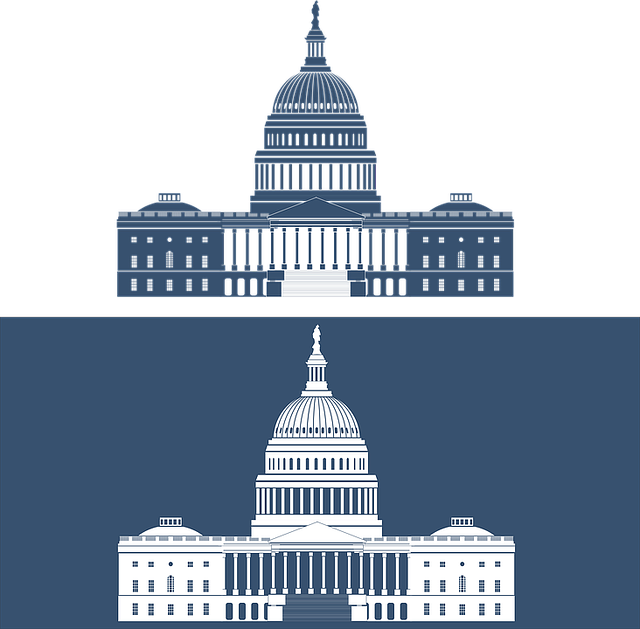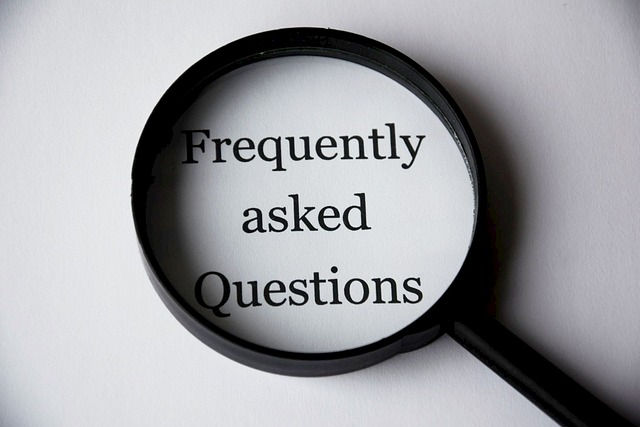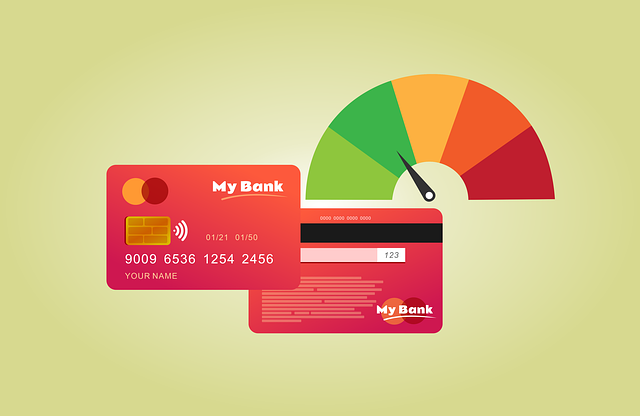What is a VA Small Business Loan?
The term “VA Small Business Loan” is often used as a catch-all for various small business loans that can help veteran-owned businesses. However, it’s inaccurate as the Department of Veterans Affairs (VA) provides no small business loan options.
The VA does provide numerous resources for veterans who own or plan to own a small business. One of those resources is directing veterans to the US Small Business Administration (SBA) for veteran business loans.
Veteran-owned businesses can use business loan proceeds for various business purposes, such as:
- Working capital to support operations.
- Purchasing needed business equipment.
- Buying, building, or renovating commercial real estate.
- Refinancing business debt.
- Covering temporary cash flow gaps.
- Business expansion.
- Business acquisitions.
- Seasonal business needs.
- Startup costs.
Does the Small Business Administration provide VA Loans?
SBA loans are available to veteran-owned small businesses, but the government agency does not directly approve or fund the loans. Instead, small business owners must apply to an SBA-approved financial institution, which could be a bank, credit union, or alternative business financing facilitator, like UCS.
The SBA partially guarantees the loans up to 85%. It also sets rules for lenders to follow and caps interest rates and fees.
SBA guarantees mean the federal government will reimburse lenders for losses if the business defaults. In most cases, the lender and SBA will attempt to recoup losses in a loan default by pursuing business and personal assets.
Small business owners must sign a personal guarantee to get an SBA loan. The personal guarantee promises to be personally liable if the business defaults.
The SBA provides the difference if there are not enough personal and business assets to cover the loss. With backing from the federal government, lenders can offer higher borrowing amounts, lower interest rates, and longer repayment terms. SBA loans are often considered the gold standard of small business financing.
Discontinued Veteran SBA Loan Programs
The SBA previously had two dedicated veteran small business loans: The SBA Patriot Express Loan and the SBA Veterans Advantage program.
SBA Patriot Express Loans launched in 2007 and were phased out in 2018. The veteran small business loan program helped veterans get an SBA Express loan with streamlined paperwork and an enhanced guaranty.
The SBA Veterans Advantage program was phased out in 2020. The program offered fee reductions for veteran-owned businesses.
What are the available SBA Loans for Veterans?
Here are the various small business loan programs that could benefit veterans.
SBA 7(a) Loans
- Maximum Loan Amount: $5 million.
- SBA Guarantee: Up to 85%.
- Terms: Up to 25 years for real estate; 10 years for other purposes.
Small businesses can use SBA 7(a) loan funds for various business purposes, including purchasing equipment, funding working capital, purchasing commercial real estate, and business expansion. The SBA guarantees 85% for loans up to $150,000 and 75% for loans over $150,000.
SBA interest rates are based on the Prime interest rate plus the lender’s rate (sometimes called the lender’s spread). As of July 2023, the Prime is 8.5%, but it’s subject to change depending on various economic factors.
Let’s look at the maximum interest rates for variable and fixed interest rates.
Variable Interest Rates
For loans with a maturity under 7 years:
- $0-$25,000: Prime rate + 4.25%
- $25,001-$50,000: Prime rate + 3.25%
- $50,001 or above: Prime rate + 2.25%
For loans with a maturity over 7 years:
- $0-$25,000: Prime rate + 4.75%.
- $25,0001-$50,000: Prime rate + 3.75%.
- $50,0001 or above: Prime rate + 2.75%.
Fixed Interest Rates
- $0-$25,000: Prime rate + 8%.
- $25,001-$50,000: Prime rate + 7%.
- $50,001-$250,000: Prime rate + 6%.
- Over $250,000: Prime rate + 5%.
There are several subsets of the SBA 7(a) Loan, which include:
- Export Express Loan.
- Export Working Loan.
- International Trade Loan.
- CAPLines of Credit.
SBA Express Loans
- Maximum Loan Amount: $500,000.
- SBA Guarantee: 50%
- Terms: Up to 7 years if used as a line of credit.
The SBA Express Loan was designed for businesses needing urgent funding. The average turnaround time on the express loan is within 36 hours. The expedited time means the SBA only guarantees 50% of the loan.
The SBA grants more authority to lending institutions to review and approve SBA Express Loans. The increased autonomy for the lender means a faster turnaround time for borrowers.
SBA Express loans of $25,000 or less do not require collateral. The lender’s collateral requirements apply to loans between $25,000 and $350,000. For any loan over $350,000, the SBA requires the lender to collateralize the loan to the “maximum extent possible.”
SBA Community Advantage Loan
- Maximum Loan Amount: $5 million.
- SBA Guarantee: Up to 85%.
- Terms: Up to 25 years for real estate; 10 years for other purposes.
SBA Community Advantages loans are a pilot program under the umbrella of SBA 7(a). The SBA launched the pilot program to help fund businesses in underserved markets.
Specifically, the loan program provides funding to startups, newer businesses, and companies in riskier industries and helps fund underrepresented business owners, such as women, minorities, and veterans.
The SBA launched the pilot program in 2011. It was initially scheduled to end in 2020 but has since been extended to September 30, 2024. The SBA could extend it further, make it a permanent part of the 7(a) loan program, or let it expire on its scheduled date.
The most significant difference is that businesses must apply to a specialized Community Advantage lender, often shortened to “CA lender.” CA Lenders must apply to the SBA to receive the special status to service Community Advantage loans.
CA lenders can be:
- Certified Development Companies (CDCs)
- Microloan intermediary lenders.
- Intermediary lending pilot (ILP) program participants.
- US Treasury-certified Community Development Financial Institutions (CDFI) that are not federally regulated.
The SBA caps the interest rates lenders can charge. Maximum interest rates work as follows:
- Loans of $50,000 or less: Wall Street Journal (WSJ) Prime + 6.5%.
- Loans between $50,001 and $250,000: WSJ Prime + 6%.
- Loans over $250,000: WSJ Prime + 4.5%.
As of September 2023, the WSJ Prime is 8.5%.
Military Reservist Economic Injury Disaster Loan Program (MREIDL)
- Maximum Loan Amount: $2 million.
- SBA Guarantee: Up to 85%.
- Terms: Up to 30 years.
The MREIDL is the only current SBA loan program specifically for active military members. The loan is intended to help cover expenses when a business faces economic hardship due to an essential employee getting called up to active duty. The MREIDL provides funding for business owners in the military reserves or National Guard after deployment.
Are there Other Business Loans for Veterans?
Veterans have other small business loan options outside of government-backed loans.
Traditional Business Loans
Some traditional lenders, like banks and credit unions, offer small business loans for veterans. However, traditional lenders usually have more stringent qualifications and take a long time to fund. It can be more challenging to qualify for a business bank loan than an SBA loan.
Veterans might have more luck getting funding from financial institutions that cater to active or former military members. For example, The Navy Federal Credit Union specializes in banking and financing services for members of the Department of Defense, National Guard, and all branches of the US Military. It offers Commercial Real Estate Loans, Business Lines of Credit, and Business Vehicle Loans.
Alternative Business Loans
A veteran-owned business might have more opportunities with alternative business lenders, which aren’t as stringent as traditional lenders. Online lenders or lending marketplaces are non-bank institutions that can often provide funding for younger businesses and credit-challenged business owners.
They’re sometimes called fintech lenders because they use financial technology (fintech) tools to underwrite and fund business loans quickly. Most provide convenient online applications with minimal documentation requirements.
Many alternative lenders take a holistic approach to reviewing your business and approving loans. Instead of just looking at traditional factors like credit scores, time in business, revenue, and assets, alternative lenders examine your cash flow and potential for growth. That’s one reason they’re often more lenient about credit and how long you’re business has been in operation.
The following small business loans are available through our lender network. While they are not exclusive to veterans, many of these funding solutions are easier to obtain for any business owner who can’t qualify for traditional lending.
Business Term Loans
- Amounts: $10k – $5 million.
- Rates: Factor rates starting at 1%-4% p/mo.
- Terms: 3 months – 5 years.
- Funding speed: 1-3 business days.
Business term loans are traditional financing structures. The business receives a large one-time disbursement from the lender. It can use the loan proceeds for most business purposes, such as working capital, one-time purchases, expansion, acquisitions, etc.
The business repays the loan principal, interest, and applicable fees in regular, scheduled payments. Most business term loans have a fixed interest rate and monthly payments. However, some lenders might have a variable interest rate or more frequent repayments.
Business Lines of Credit
- Amounts: $1k – $1 million.
- Rates: Factor rates starting at 1% p/mo.
- Terms: Up to 36 months.
- Funding speed: 1-3 business days.
A business line of credit provides “on-demand” funding when your business needs it the most (as long as it was activated ahead of time). Instead of a one-time disbursement, the funds become an available credit limit.
You can draw funds from the credit line as needed and only pay interest on the money you draw against the credit limit. As you repay what you drew (plus applicable interest), the credit limit replenishes, like a credit card. This is called a revolving line of credit.
Businesses can draw from the line of credit indefinitely if they make the payments on time and don’t exceed the credit limit. Business lines of credit are ideal for covering unexpected costs or ongoing projects.
Equipment Financing
- Amounts: Up to $5 million per piece of equipment.
- Rates: Factor rates starting at 3.5%.
- Terms: 1-10 years.
- Funding speed: 3-10 business days.
An equipment loan is like a term loan, except it’s specifically for purchasing business equipment. You can use the loan to buy most equipment, from commercial kitchen appliances to construction equipment to computers and office furniture.
The equipment you’re financing becomes the collateral for the loan. If you default, the lender claims the equipment to cover its loss. This is known as a self-collateralizing loan. You might be familiar with other self-collateralized loans, such as mortgages or car loans.
Invoice Factoring
- Amounts: $10k – $10 million.
- Rates: Factor rates starting at 1% p/mo.
- Terms: Up to 24 months.
- Funding speed: 1-2 weeks.
Invoice factoring, also called accounts receivable financing, helps businesses turn unpaid invoices into working capital. Companies that sell on credit and issue an invoice might not see that revenue from providing their goods or services for 30 days or more, depending on the invoice terms.
Most businesses issue invoices with net-30 terms, meaning the invoiced client has 30 days to pay. However, invoice terms can also be net-60, net-90, net-120, etc.
Sometimes, the delay between delivering goods or services and getting paid for them causes significant cash flow interruptions. Invoice factoring is a process where the business sells, or “factors,” the invoice with a third-party factoring company.
It provides a cash advance based on the invoice’s value. Most advance rates are 75%-95%. The factoring company then collects the invoice payment from the business’s customers. After it receives payment, the factoring company releases the remaining amount minus its fee.
Merchant Cash Advance
- Amounts: $5k – $1 million.
- Rates: Factor rates starting 1%-6% p/mo.
- Terms: 3 – 24 months.
- Funding speed: 1-2 business days.
A merchant cash advance (MCA) is an alternative business funding solution geared toward credit-challenged business owners. The company receives a significant cash advance, usually based on previous sales history.
The advance and factor rate are repaid with a fixed percentage of future sales. Most merchant cash advances have daily payments, but some might be weekly or biweekly.
Traditional merchant cash advances take repayment directly from your credit card reader, meaning repayment only comes from debit and credit card sales. More modern MCAs take repayment from all sources of revenue via an ACH transfer from your business bank account.
Working Capital Loans
- Amounts: $1k – $5 million.
- Rates: Starting at Prime + 2.75%.
- Terms: 3 months – 10 years.
- Funding speed: 1-3 business days.
Working capital loans provide funding for day-to-day operational expenses. Examples include paying rent, covering payroll, purchasing inventory, and paying utility bills.
Various working capital loan options include lines of credit, term loans, and MCAs. The specific criteria for these loans is that the funds must be used for operating expenses.
That means you cannot use the money for capital expenditures, such as buying real estate for equipment. It also means you generally can’t use the money for business acquisitions or refinancing debt.
How do Veteran Business Owners qualify for Business Loans?
Qualifications depend on the lender and loan type.
SBA Loan Qualifications for Veteran Business Owners
To qualify for the SBA loans, your business must:
- Be at least 51% veteran-owned**.
- Be a for-profit enterprise.
- Be located and doing business in the US.
- Meet the SBA size standards for a small business.
- Demonstrate the ability to repay the loan via cash flow.
- Not be delinquent on debt or have recent bankruptcies.
** The veteran ownership must fall into one of these categories:
- Veteran who didn’t receive a dishonorable or bad conduct discharge.
- Service-disabled veterans
- Active duty service member in the Military Transition Assistance Program.
- A National Guard or reservist member.
- A current spouse of one of the above or one whose spouse died while in service or of a service-connected disability.
To qualify for an MREIDL, you must be a service member, reservist, or National Guard member on active duty. You must apply while on active duty or within one year after service or discharge.
In addition to meeting the SBA requirements, veteran business owners must meet the lender requirements. Each lender sets different minimums for credit score, time in business, and annual revenue. At UCS, approved companies we work with typically meet the following minimums:
- Personal credit score: 650+.
- Time in business: 2+ years.
- Annual revenue: $350k+.
Alternative Business Loan Qualifications
Approved business owners we work with typically meet the following minimum qualifications for each loan type.
Business Term Loans:
- Personal credit score: 550+.
- Time in business: 6+ months.
- Annual revenue: $75k+.
Business Line of Credit:
- Personal credit score: 625+.
- Time in business: 6+ months.
- Annual revenue: $200k+.
Equipment Financing:
- Personal credit score: 600+.
- Time in business: 1+ years.
- Annual revenue: $250k+.
Invoice Factoring:
- Personal credit score: 550+.
- Time in business: 1+ years.
- Annual revenue: $250k+.
Merchant Cash Advance:
- Personal credit score: 550+.
- Time in business: 4+ months.
- Annual revenue: $120k+.
Working Capital Loans:
- Personal credit score: 550+.
- Time in business: 2+ years.
- Annual revenue: $180k+.
How to apply for a Veteran Business Loan:
Veteran business owners must apply to a commercial lender or lending marketplace for veteran business loans. The only exception is that you can apply directly to the SBA for the MREIDL loan.
You can apply for an alternative business loan or start the SBA loan application process with our one-page application. Follow these steps to apply.
Step 1: Determine the right loan for your business needs.
We usually recommend the loan options that feature the most uncomplicated repayment terms for your cash flow.
Step 2: Gather your documents.
The following documentation requirements are based on SBA loans. Most alternative business loans have fewer requirements.
Be prepared to provide:
- Proof of veteran, reservist, or National Guard status with the correct Department of Defense form and any corresponding documentation.
- Driver’s License.
- Business license or certificate.
- Voided Business Check (for business bank account information).
- Bank Statements.
- Credit Report/Statement of Personal Credit History.
- Business Tax Returns.
- Credit Card Processing Statements.
- Personal Tax Returns – 3 Years.
- Business Tax Returns – 3 Years.
- Business Plan (Not in all cases).
- Personal Financial Statement.
- List of Real Estate Owned or Business Leases if applicable.
- Debt Schedule/Loan/Rent/Lease Documentation
- Deeds/Title/Ownership documentation for any collateral/Security
- Current Profit & Loss Statements and Balance Sheet Year-to-Date
- A/R and A/P Reports
Step 3: Fill out the application.
You can begin the application process by calling us or filling out our one-page online application. Either way, you’ll be asked to enter the information from the previous section along with your desired funding amount.
Step 4: Speak to a representative.
Once you apply, a representative will contact you to explain the repayment structure, rates, and terms of your available options. This way, you won’t have to worry about any surprises or hidden fees during repayment.
Step 5: Receive approval.
SBA Loans through our network generally take 3-5 weeks to process. Once approved and your file is closed, funds should appear in your bank account in a few business days.
All other loans have a much shorter approval and funding time. Depending on the type of loan, funds should appear in your bank account in 1-3 business days for most funding options.
Frequently Asked Questions
Here are the most common questions about VA business loans.
Does the VA offer Business Loans?
Despite the prevalence of the term “VA business loan,” the VA does not offer direct financing for business loans. Instead, it directs veterans to the SBA loan program.
However, the department partners with other organizations to offer various resources and support for veteran entrepreneurs and business owners. Programs include training and classes on management, marketing, developing business plans, and bidding on government contracts.
Resources for veteran-owned businesses include:
Boots to Business: An SBA program that provides training and educational materials to help veterans launch or grow a business. These veteran entrepreneurship training programs provide support at various domestic and international military installations.
Veteran Business Outreach Program: Per the SBA, “The Veterans Business Outreach Center (VBOC) program is designed to provide entrepreneurial development services such as business training, counseling, and resource partner referrals to service members, veterans, National Guard & Reserve members, and military spouses interested in starting or growing a small business. SBA has 28 organizations participating in this cooperative agreement and serving as VBOCs.”
Veteran Business Outreach Centers: VBOCs are available to help veterans transition to civilian life and provide entrepreneurial programs with management courses, market research, and qualified agent referrals.
Women Veteran Entrepreneurship Training Program (WVETP): This program provides training for women veterans, active duty women service members, or woman spouses of service members to start and grow a business.
Service Disabled Veterans Entrepreneurship Training Program (SDVETP): A service for disabled vets who own or aspire to own a business. The program includes various grant opportunities.
Why do Veterans struggle to get Business Financing?
Difficulty obtaining business funding isn’t unique to veterans. Many small business owners struggle to get business loans in today’s economic climate. Traditional lenders have been hesitant about approving business loans since the Great Recession of 2008. Business bank loan approval rates are often below 50%.
Veterans face additional roadblocks to financing within the already challenging business loan landscape. Gaps in financial history or being called to active duty can cause underwriting issues for lenders.
Fortunately, the rapid growth of alternative online business loan lenders has helped meet the demand for business financing. As mentioned, alternative lenders have much more lenient approval requirements and faster funding times.
Some alternative lenders and banks may offer additional help to veterans, such as waiving fees or expediting the loan process. However, these options are more often on a case-by-case basis.
Can Veterans get Business Loans with Bad Credit?
It may be possible to get a small business loan with bad credit. While a low credit score rules out most bank loan options, many online lenders offer bad credit business loans.
However, business loans for bad credit come with various drawbacks. You’ll typically get a lower borrowing amount. The interest rates and fees for bad credit business loans are much higher. You’ll also likely get shorter terms and frequent repayments (usually due daily or weekly).
On the other hand, applying to an online lender usually means a quick and convenient application with minimal documentation. In addition, you’re more likely to get quick approval and fast funding.
Some veteran-owned businesses take out a bad credit business loan as a form of bridge financing. The loan provides necessary short-term funding to support operations while repairing credit and building business credit history.
With a higher credit score and more time in business, you can likely qualify for a more advantageous, long-term loan, such as SBA loans. You could then pay off the remaining balance of the bad credit loan.
Bad Credit Business Loan Pros & Cons
Pros:
- Accessible financing for veterans with a low credit score.
- Could potentially help build or repair credit with timely payments.
- Might be able to use the funds to pay off existing debt.
- Quick and easy online applications.
- Usually fast approval and funding times.
Cons:
- Higher interest rates & fees.
- Lower borrowing amounts.
- Typically short-term financing with frequent repayments.
- Might require collateral or a personal guarantee.
- Could require automatic payment withdrawals.
- Fewer options for lenders and loan types.
What are my alternatives to VA Business Loans?
Veterans also have other opportunities to raise business funding outside of business loans. Here are some viable alternatives to small business loans.
Veteran Business Grants
There are multiple business grants geared towards veterans and active military members. Grants are an excellent option because you don’t need to repay the money. However, that also means there’s intense competition.
You want to make your application stand out. Consider creative ways to showcase your unique business idea. grants also take a long time to fund, so have a backup plan if you don’t get the grant you want.
The federal government, state and local governments, nonprofit organizations, and private companies offer various business grants. Some grant programs prioritize veterans, but most are open to veterans and non-veterans.
Business owners can visit grants.gov or grantwatch.com for available grant opportunities. You can also visit SBA.gov or your local SBA office for business grant information.
Examples of business grants for veterans include:
Second Service Foundation: This organization provides educational resources and a Capital Grant program to assist veterans in their business ownership pursuits. It was formerly the Streetshares Foundation, which offered the “Streetshares Foundation Veteran Small Business Award.”
Underserved and Veteran Farmers, Ranchers, and Foresters (2501) Grant Program: The USDA offers this program to help underserved farmers access USDA funding. Grant funds help veteran and underserved farmers receive tools, education, and technical assistance. The 2501 program began in 1990 and was updated in 2014 to include veterans.
Farmer Veteran Fellowship Fund: The Farmer Veteran Coalition provides grants ranging from $1,000 to $4,000 for veteran farms. It’s provided over $4 million in funds to over 930 veterans since 2011.
Equity Financing
Businesses can also raise capital through equity financing. The process does involve selling some ownership stake in your company to investors. However, you won’t have to repay the amount.
Most investors will want some control over the business, such as a board seat. Others might be willing to be a silent partner.
While the idea of selling equity might daunt you, it could be an opportunity to expand beyond your knowledge base. Bringing in investors with extensive business experience could help create new growth opportunities.
Crowdfunding
You can also try crowdfunding to raise money for your business. Several crowdfunding platforms allow friends, family, fans, and customers to make microdonations to help you reach a funding goal. However, crowdfunding requires a lot of effort.
The two most common forms of crowdfunding are:
Rewards-Based Crowdfunding: Offers unique gifts or incentives for donors. For example, customers might win a particular service or product, a discount, or company merchandise.
Equity-Based Crowdfunding: This process lets you sell small ownership shares in exchange for donations. You must use a funding portal that’s a registered broker-dealer with the US Securities and Exchange Commission (SEC) for this method.
Vendor Trade Credit
Most vendors or suppliers you work with will offer trade credit, typically on net-30 terms. With trade credit, you get the supplies or inventory you need on credit and add the amount owed to your accounts payable (A/P). Net-30 terms mean you must pay the invoice within 30 days.
When using trade credit, look for vendors that report to the business credit bureaus (Experian, Equifax Business, and Dun & Bradstreet). Building your business credit will help you qualify for a small business loan with no personal guarantee requirements.
Business Credit Cards
It’s typically easier to qualify for a business credit card than a business loan. Most credit card companies don’t require a long time in business, so it’s also an option for startups.
Personal Loans
Getting a personal loan to support your business might be possible if you don’t have the business history to qualify for commercial loans. Using a personal credit card or your savings, if applicable, might also be possible.
However, be cautious about using personal loans, credit cards, or personal savings for business. It’s best to keep your personal and business finances separate.
VA Small Business Loan Options – Final Thoughts
It’s unfortunate that veterans face additional adversity in getting small business financing. Most service members put their lives on hold and on the line in service of their country. Vets who aim to participate in the lifeblood of the American economy – small business – in their civilian life should have access to the funds they need.
While the SBA has recently phased out the Veterans Advantage Loan and Patriot Express Loan programs, other options remain. The MREIDL may be the only veteran-specific program still active, but other SBA loans can provide business financing.
Some lenders may also offer veteran-specific programs or discounts. Alternative business loans help veteran and non-veteran business owners get funding when the banks say no.
Contact us if you have more questions about VA small business loans or to apply for small business funding. Our business financing experts can help you find the best loan options for your small business goals and qualifications.


























